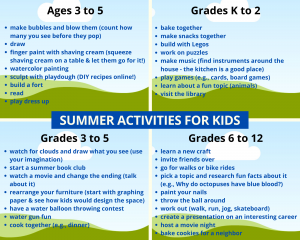
Looking after a child’s mental health has become a recurring topic of concern for our patients and their families for the past fifteen months. During this time, we’ve all had to adjust, readjust and be resilient to retain some sense of normality (and some sense of humor as well). Now that we head into the second summer affected by the COVID 19 pandemic, you may be wondering what approach to take.
Parents rightly have concerns during these unprecedented times. Last year, we were presented with one set of circumstances and this year things have changed again as our world opens up. Regardless of your personal convictions and family health decisions, uncertainty lingers, which makes it harder to plan.
Resiliency is still the name of the game! We want our children to thrive this summer, too. We hope this article helps as you begin summer planning for your family.
How the Pandemic May Have Affected Your Child’s Mental Health
Keeping a pulse on a child’s mental health includes being vigilant about the triggers of anxiety and depression. We know that the pandemic magnified anxiety and depression in both children and adults, stemming from the resulting uncertainty and a perceived lack of control. The months went on with no clear end in sight, nor clear answers to our kids’ questions (or our own): “When can we see Grandma?” “When can we go to Disney?” “When will we be able to go on vacation?”
Humans are hard-wired for survival, and though everyone can have different triggers for the “fight or flight” response, we all have that instinct. The pandemic heightened our survival response. During the pandemic, we often closed conversations with “Be safe!”
The fears of the past year led to very real feelings of insecurity. Parents of kids suffering from anxiety, depression or social anxiety disorder can especially identify, as feeling unsafe or out of control for these kids can trigger their conditions.
Lack of structure can be one of these triggers. Even people that have “go with the flow” personalities appreciate having rules and boundaries; these constructs instinctually make us feel safe.
The Importance of Structure for a Child’s Mental Health
You might think that a summer of sleeping in and general laziness after returning to a relatively normal routine of school and activities would be good for children. However, as much as they may buck against their schedule or complain about school, children thrive on the structure and routine that school provides. They might not miss the work, per say, but they miss the predictability—knowing “what’s next.” Predictability allows us to mentally start preparing ourselves to make decisions and solve problems.
We all like being mentally prepared in life and having something to look forward to! So, when the summer months arrive after the hustle and bustle of the school year, kids often don’t know what to do with themselves and parents wonder how to keep their kids busy!
Scheduling During the Summer
The number-one way to help support your child’s mental health during the summer is to create structure by establishing a summer schedule. It doesn’t have to be set in stone. First, try to maintain a similar daily wake/sleep schedule. It’s the summer, so waking up at 8am instead of 7am is fine, but not sleeping in till noon! Just try to keep it close to what it was during the school year.
Schedule time to read a book and then time to do an art project. Weave in chores to help around the house and then your family’s decided amount of device time. Your summertime schedule should fit your family values, whether those are eating healthy (help prep meals), physical activity (an evening walk) or spiritual activities (learning Bible verses).
Of course, children in different developmental stages should have different activities on their schedules. We’ve included a sample from a parent who was willing to share her 10-year-old son’s summer schedule. In her model, the kids earn points for completing their activities, which they get to redeem at the end of the week for treats or spending money. Again, let your family values guide your kids’ rewards!
Sample Summer Activities Per Age Group
Here are some age-appropriate activities you can put on your child’s summer schedule. Of course, there will be cross-over depending on each child’s individual developmental level.

Download a PDF of this image here.
A Note About Screen Time (Yet Again)
An article about supporting a child’s mental health would not be complete without the screen time discussion! By now you’ve heard that experts recommend for ending screen time two hours before bedtime for both children and adults. Insomnia and disrupted circadian rhythms are just not worth it!
Work screen time into your child’s summer schedule. For older children who get an hour or two of screen time, one idea is to “bank it” so the child knows that once the time is used up for the day, they’re done! When you create your schedule for the day, you might want to split up the time in 30-minute increments. Above all, it is very important for parents to remember that they still make the rules about electronic devices, not the kids!
How Summer Studies Bolster a Child’s Mental Health
It’s estimated that kids have lost two months’ worth of academic time. This is especially challenging for kids who have learning disabilities or struggle with ADD/ADHD. If you’re concerned with the amount of school time lost in the past year or would like to preserve your kids’ skills, there are many online programs that can help. You can find school activity books online and in stores, and even free subject-specific templates. For example, if you have a child going into third grade and you want to work on cursive, you can find free templates online.
Working on a few pages every day in the summer gives kids a great start to the school year. They can go back with more confidence and won’t have to “brush off the cobwebs” because their basic skills will still be fresh in their minds. They’ll be a bit ahead of the game since the curriculum for the first few weeks of the school year is a review of skills from the year before. Kids who work on their skills during the summer go back mentally, socially and emotionally ready for the new school year.
Create a Family Summer Bucket List
As a family, write down all the activities you want to do before school starts again. Think of them as family adventures; they don’t need to be extravagant or require a lot of travel!
Some ideas are:
- Visiting a garden
- Going to a beach you’ve never been to
- Strolling to your nearest ice cream shop
- Planning books to read as a family
Get off those devices, go outside, get some vitamin D, move your body and generate those endorphins! The idea here is to have some pre-planned things to do in the evenings and on weekends. The most important part of this exercise is to involve the whole family, so kids feel good about taking part.
You may have discovered new things to do as a family during the months of limited socialization and want to make those activities permanent! Perfect! Doing that embraces the philosophy of finding the gifts or blessings in obstacles. And there’s nothing better for a child’s mental health than encouraging and modeling the ability to hold a positive outlook on life—a hallmark of true resilience!

Special thanks to Diana Shaw, Ed.S, LMHC for her help with this article. Diana is a neighbor to CIPC and The Salt Room Longwood. Her practice, Chaos Solutions Counseling, LLC, is located in our building. She specializes in integrated wellness (mental, emotional, social, spiritual, intellectual, and vocational). Diana helps her clients (ages 3 +) have a better understanding of themselves to better work through such challenges as anxiety, depression, and grief. She joins them on their journey as she teaches them tools to add to their toolbox of life. Call 407-708-9012 for appointments. Follow her Facebook page here: https://www.facebook.com/ChaosSolutionsCounseling/





